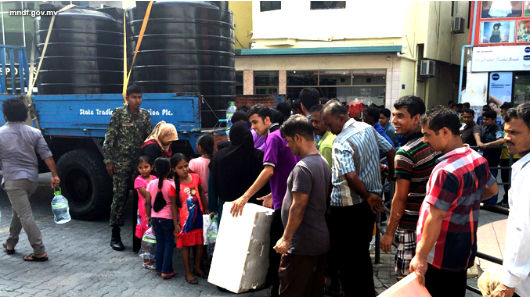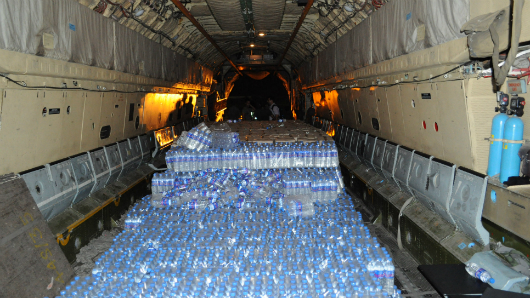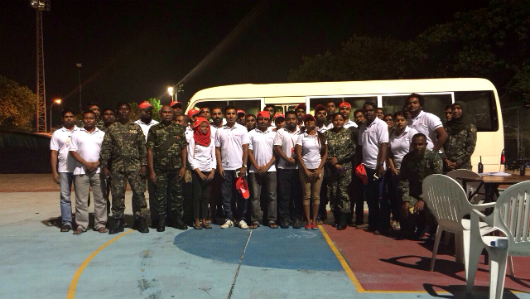Supreme Court Justice Ali Hameed has been appointed to the Judicial Service Commission (JSC) by President Abdulla Yameen.
A media official from the judicial watchdog confirmed that Hameed would replace JSC President Justice Adam Mohamed, who resigned on Sunday (January 18) citing personal reasons.
Last year, the JSC cleared Hameed of misconduct charges, citing lack of evidence to support his alleged appearance in three sex tapes involving three different foreign women, which went viral in mid-2013.
Former JSC member and outspoken proponent of judicial reform Aishath Velezinee said Hameed’s “appointment to the JSC by the consensus of Supreme Court judges shows how low the courts have fallen”.
The commission voted against suspending Hameed last year, citing a lack of evidence, while the Maldives Police Service – which launched its own investigation – told the press that they been unable to determine if the man seen fornicating with the women was Hameed.
In its ruling last year, the JSC noted that the police had closed its own investigation into the case, and that the tape may constitute an act of espionage as it appeared to have been filmed by an unauthorised body, noting that it is against the Constitution to obtain evidence by unlawful means.
Corruption charges filed against the Supreme Court judge were also stalled last year after key documents were said to have been destroyed by a coffee spill at the Criminal Court.
Velezinee today described Ali Hameed as a puppet to the current regime saying: “Any judge who doesn’t deliver as directed will be subjected to action by the JSC. Ali Hameed has got a noose on his own neck – the sex tapes. The government can pull any time.”
“This compromises the independence of the judiciary as the old system would now prevail,” added Velezinee, stating that the current government would now be able to control the decisions of the courts.
The ten member JSC includes representatives from High Court, the trial courts, the People’s Majlis, the public (appointed by the Majlis), the attorney general, the chair of the Civil Service Commission, the Majlis speaker, a presidential appointee, a practising lawyer, and a Supreme Court judge nominated by his peers.
The appointment comes less than a month after the JSC found Hameed’s fellow judges on the Supreme Court – Chief Justice Ahmed Faiz and Justice Muthasim Adnan – unfit to continue to serve on the bench in a ruling made available to neither the public nor MPs.
The secrecy of the decision did not prevent the Majlis voting to remove the pair three days later (December 14), in a move described as having “severely jeopardised” the country’s judicial independence by Commonwealth groups.
The Civil Court and several prominent lawyers also condemned the JSC’s recommendation to remove the judges, saying that the People’s Majlis had “forced” the JSC to deem Faiz and Adnan unfit for the bench without due process, through an “unconstitutional” amendment to the Judicature Act.
United Nations Special Rapporteur on Independence of Judges and lawyers Gabriela Knaul also expressed serious concern over the decision, saying that it would “have a chilling effect on the work of the judiciary at all levels”.
In a 2013 report, Knaul noted that political polarisation in the Maldives had meant that the “commission has allegedly been subjected to all sorts of external influence and has consequently been unable to function properly”.
Related to this story
JSC President Justice Adam Mohamed Abdulla resigns
Supreme Court Judge Ali Hameed cleared of misconduct in sex tape scandal
Two more sex videos of Supreme Court judge leaked
Police suspend investigations into Supreme Court judge’s sex scandal


